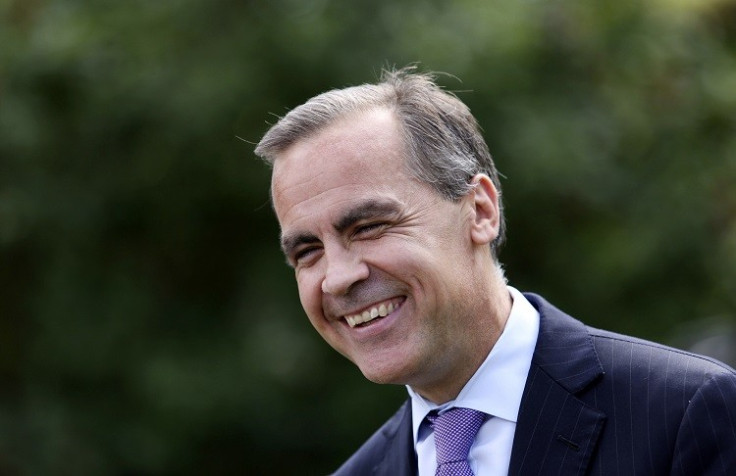Bank of England Governor Mark Carney Wins Near Unanimous MPC Backing for Forward Guidance

The Bank of England Governor Mark Carney has won near-unanimous support from his fellow monetary policymakers for the adoption of unemployment-linked forward guidance.
Minutes from the August meeting of the BoE's Monetary Policy Committee show that eight of the nine members voted to give markets forward guidance on hiking the base rate, which has sat at its record low of 0.5% for more than three years.
The only dissenting MPC member, Martin Weale, supported the principle of forward guidance but disagreed with a technical detail on how Carney proposed it should be implemented.
Carney unveiled his forward guidance when delivering the BoE's quarterly inflation report. He said the MPC would not consider lifting interest rates until the UK unemployment rate fell to 7%.
However, there were three knockouts that would void the forward guidance.
The Report
Firstly, that the MPC thinks it is more likely, than not, that inflation in the 18-24 months ahead will be at least 0.5% higher than the government's 2% target. Secondly, that medium-term inflation expectations are no longer well anchored.
And thirdly, that the BoE's Financial Policy Committee judged the stance of monetary policy was a significant threat to the UK's financial stability.
"One member [Weale], while accepting the principles of forward guidance, saw a particularly compelling need to do more to manage the risk that forward guidance could lead to an increase in medium-term inflation expectations, by setting an even shorter time horizon," said the BoE minutes.
"That would make clear that the forward guidance was fully compatible with the Committee's commitment to meeting the 2% inflation target in the medium term."
Marcus Bullus, trading director at MB Capital, said the BoE's forward guidance of a 7% unemployment rate "is in no danger of being called suddenly into action".
"While surging house prices are stoking a consumption-led boom, job creation is still modest. The UK recovery is up and running, but it has a limp," he said.
UK Recovery
The BoE minutes note that better-than-expected data emerging from the UK economy.
GDP growth accelerated in the second quarter to 0.6%, after 0.3% expansion in the first three months. Private industry data shows the three major sectors - service, construction and manufacturing - firing on all cylinders at the beginning of the third quarter.
"The pickup in growth was supported by: a moderate but persistent expansion in global demand; the sustained stimulus from monetary policy; a further easing in credit conditions aided by the Funding for Lending Scheme and steps to increase the resilience of UK banks and building societies; and a gradual fading of the impact of the financial crisis on household and business spending," said the BoE.
"Even so, the legacy of adjustments left by the financial crisis meant that the recovery was likely to remain weak by historical standards.
"The outlook for growth was stronger than in May. That largely reflected the unexpectedly strong tone of recent domestic data, including the marked improvement in business and consumer sentiment.
"It also reflected the judgement that any forward guidance provided by the Committee might make its current monetary stimulus more effective, in part by providing greater clarity about the conditions under which the highly stimulative stance of policy would be maintained.
"The pace at which unemployment would fall over the forecast period was highly uncertain, as it depended not only on demand and labour force participation but also on productivity: the greater the revival in productivity as output increased, the less rapidly would unemployment fall, and vice versa."
Unemployment in the three months to June was at a rate of 7.8%.
© Copyright IBTimes 2025. All rights reserved.






















